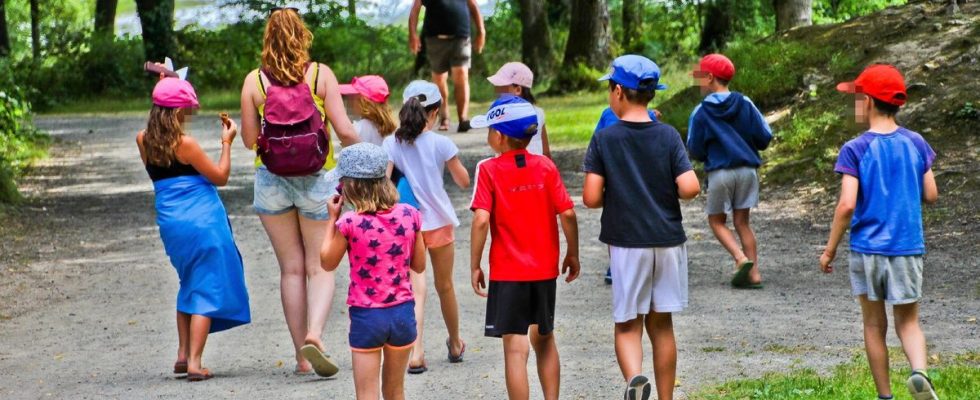20 Minutes, in partnership with retronewsthe press site of the National Library of France, offers a series of articles on the first paid holidays. Today, focus on the birth of summer camps.
“The pretty summer camps, thank you Mom, thank you Dad. Every year, I want it to start again. You Kaïdi aï-di aï-da”. They have been sung, acclaimed and for good reason: since their birth in France more than a century ago, summer camps have welcomed more than 60 million young French people.
A success that was blown to us by one of our neighbors. Because it was in Switzerland that they were born in 1876. Hermann Walter Bion, a pastor moved by the poor health of disadvantaged children in Zurich, organizes a stay in Appenzell so that they can enjoy the great outdoors. These stays financed by subscriptions are a success and are developing rapidly in Switzerland. In France, the first holiday camp was created in 1901 in Saint-Etienne by Father Souhé. “At the start, it was above all a health and social work. Because the purpose of these colonies was to take care of pre-tuberculosis children from underprivileged backgrounds to offer them a cure of sun and fresh air. They were mostly hosted by families in rural areas and more rarely in care establishments, ”recalls Nicolas Palluau, historian at the Norbert Elias Center and specialist in youth movements.
Leaving, sometimes for the first time in one’s life
The press of the time was dithyrambic, as this article by The cross in 1910: “If there is one work that is admirable above all, it is the work of holiday camps which, from weak, sickly or simply anemic children, turn children into strong, energetic, healthy children, giving them back their life together with physical and moral health.
But it was in the 1930s that the collective reception of children for summer camps gradually became established, thanks to the action of pedagogues. “Instructors are appearing and the number of children leaving this way is increasing, especially after adoption of paid holidays. And even during the war of 39-45, the summer camps continued,” explains Nicolas Palluau. The press relays this success, like Paris Evening which headlines in August 1936: “200 children have left”. The same month, the Popular exclaims “More than 400 Parisian unemployed kids have gone on vacation”. Because these colonies also constitute real social progress, as Nicolas Palluau underlines: “they have allowed children to go to the sea, to the countryside or to the mountains, sometimes for the first time in their lives”.
The benefits for children highlighted by the press
Several journalists of the time also follow the departure of children. One of the journalists from Popular recounts in 1936 “the rush in the wagons”, the tears and the laughter of the little ones leaving their parents. “For them the adventure begins (…) In a month, they will come back fresh and rosy, a blue flame in their eyes”, he enthuses. Same excitement in a journalist of theEcho of Paris which follows the departure of a group of young girls and their arrival in the countryside: “all are delirious with joy and frolic like little cabbage rabbits escaped from their cage”, he describes in a style that seems outmoded today! In 1936, West Lightning also returns to the educational contributions of the colos: “The child gets used to collective life there, he learns to ‘manage himself’, he acquires a sense of responsibility, he is morally enriched”, writes the journalist.
“The benefits of the colonies for the children which are mentioned in certain articles of the time are almost identical to those which could be underlined today: they learn to live together, play sports, discover nature”, comments Nicolas Palluau. The press of the time also evoked the benefits of the colonies for the parents, such as The Little Girondein August 1936: “the parents benefit for two months from a complete moral rest”.
And if the colonies were initially intended for children from rather underprivileged families, they then opened up to other audiences, as confirmed by Nicolas Palluau: “With the economic expansion of the 1950s and the gradual generalization of access to leisure, works councils have begun to offer camps for the children of their employees. And moreover, their financing by the State and the communities has decreased in favor of a greater participation of works councils and families”, indicates the historian. An evolution that still allows summer camps to be one of the rare places of social diversity.

